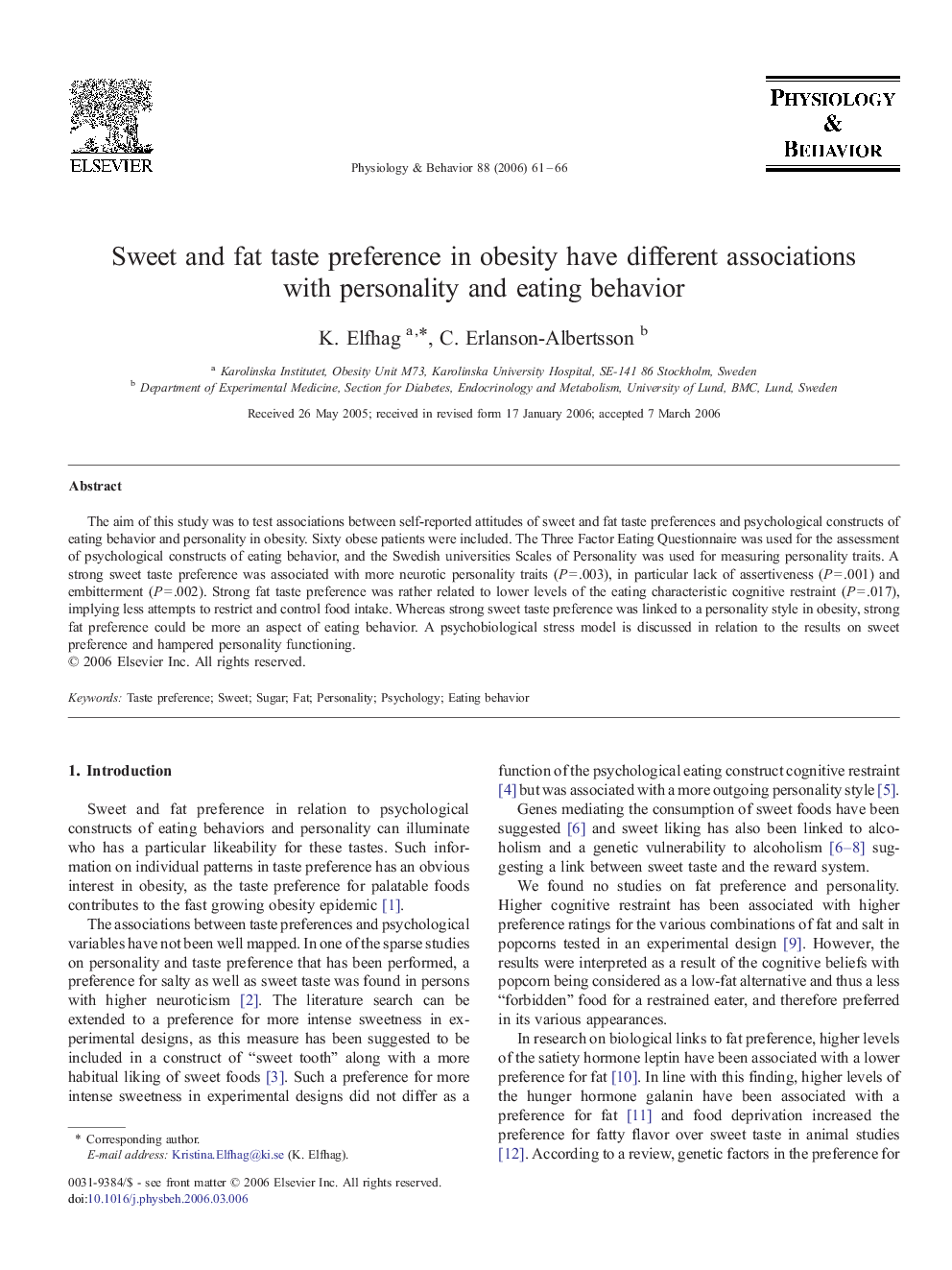| Article ID | Journal | Published Year | Pages | File Type |
|---|---|---|---|---|
| 2846392 | Physiology & Behavior | 2006 | 6 Pages |
The aim of this study was to test associations between self-reported attitudes of sweet and fat taste preferences and psychological constructs of eating behavior and personality in obesity. Sixty obese patients were included. The Three Factor Eating Questionnaire was used for the assessment of psychological constructs of eating behavior, and the Swedish universities Scales of Personality was used for measuring personality traits. A strong sweet taste preference was associated with more neurotic personality traits (P = .003), in particular lack of assertiveness (P = .001) and embitterment (P = .002). Strong fat taste preference was rather related to lower levels of the eating characteristic cognitive restraint (P = .017), implying less attempts to restrict and control food intake. Whereas strong sweet taste preference was linked to a personality style in obesity, strong fat preference could be more an aspect of eating behavior. A psychobiological stress model is discussed in relation to the results on sweet preference and hampered personality functioning.
